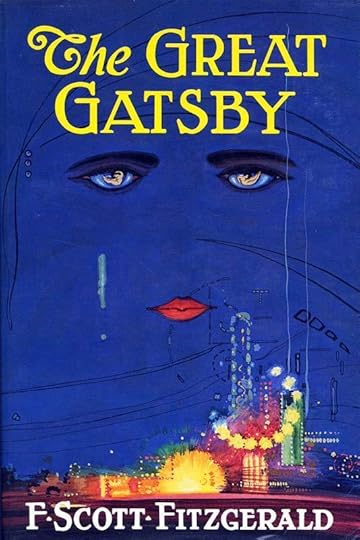The Great Gatsby: Book Review
 I’ve read the Great Gatsby more than a dozen times. It’s one of those reference books for me, in that I find I can come back to it again and again are learn something new each time.
I’ve read the Great Gatsby more than a dozen times. It’s one of those reference books for me, in that I find I can come back to it again and again are learn something new each time.
Recently I saw a preview for the upcoming film version of The Great Gatsby (directed by Baz Luhrmann who did Moulin Rouge!). Baz’s style fits his name, and is grand, dramatic, over the top and nearly absurd, but also beautiful, shocking and intense. The preview made the movie seem brutal for a book I’d thought of as lyrical, more smoldering than explosive. The preview made me wonder how much I’d forgotten about the book, since it had been years since last I’d read it, so I picked it up and read it in two sittings.
As a sketch of a story there is nothing amazing about The Great Gatsby. It’s a writer’s book in a way, since it’s so simple and in many way obvious, yet works so wonderfully well, making it irresistible to try and take it apart. It’s a deceptive little book. It’s constructed as a series of slow burning time bombs that make you simultaneously want them to both go off to relieve the pressure, but not go off, so you can enjoy the way things are slowly unraveling for as long as possible.
What makes the book sing is the first person narration, and how easy Fitzgerald makes it seem to wind brilliant internal thoughts and commentary between plotting, dialog and observation. He jumps though time and perspective but always makes you, as the reader, feel well cared for by the soft cushion of his narrative powers. But there are some moments that don’t age as well: moments of anti-semitsm and racism, which, on afterthought, were probably appropriate for 1920s America. Some of the manners of speech feel staged, but not having been born until 50 years after it was written it’s hard to argue whether he got it right or wrong. But none of those complaints stand in the way of what has always been a deeply worthwhile, and easy read.
Some choice non-spoiler quotes from the book:
Reserving judgments is a matter of infinite hope.
No — Gatsby turned out all right at the end; it is what preyed on Gatsby, what foul dust floated in the wake of his dreams that temporarily closed out my interest in the abortive sorrows and shortwinded elations of men.
Something in his leisurely movements and the secure position of his feet upon the lawn suggested that it was Mr. Gatsby himself, come out to determine what share was his of our local heavens.
The little dog was sitting on the table looking with blind eyes through the smoke, and from time to time groaning faintly. People disappeared, reappeared, made plans to go somewhere, and then lost each other, searched for each other, found each other a few feet away. Some time toward midnight Tom Buchanan and Mrs. Wilson stood face to face, discussing in impassioned voices…
He smiled understandingly — much more than understandingly. It was one of those rare smiles with a quality of eternal reassurance in it, that you may come across four or five times in life. It faced — or seemed to face — the whole external world for an instant, and then concentrated on you with an irresistible prejudice in your favor. It understood you just as far as you wanted to be understood, believed in you as you would like to believe in yourself, and assured you that it had precisely the impression of you that, at your best, you hoped to convey. Precisely at that point it vanished.



